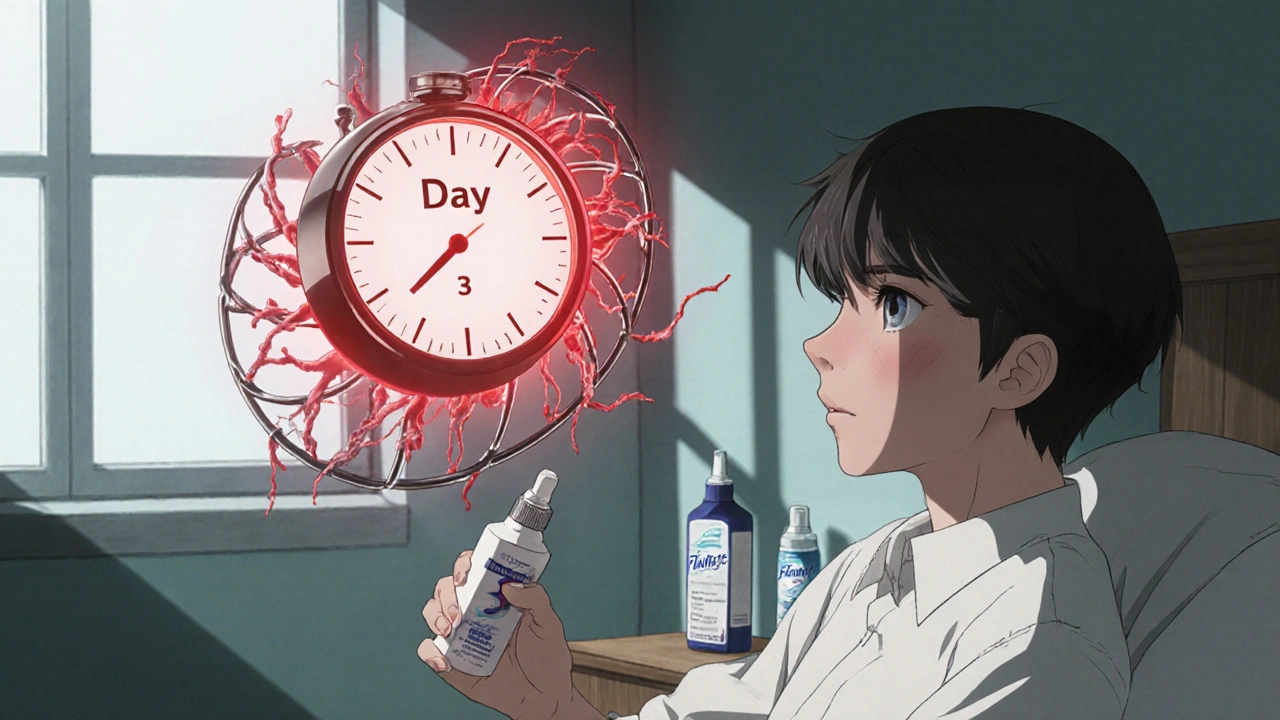Nasal Spray Overuse: Risks, Recovery, and What to Do Next
When you rely on nasal spray overuse, the habit of using decongestant nasal sprays longer than recommended, leading to worsened congestion. Also known as rhinitis medicamentosa, it’s not just a nuisance—it’s a cycle that traps people who thought they were helping themselves. You start with a stuffy nose, reach for an over-the-counter spray like oxymetazoline or phenylephrine, and it works like magic. But after a few days, your nose gets worse when you stop. So you use more. And more. Soon, you can’t breathe without it. This isn’t addiction in the drug sense—but it’s just as real in how it controls your daily life.
What’s happening? These sprays shrink blood vessels in your nose to open up airways. But your body adapts. The vessels become dependent on the spray to stay constricted. Without it, they swell even more than before. That’s rebound congestion, a condition where nasal congestion returns worse after stopping decongestant sprays. It’s not your sinuses getting worse—it’s your body’s reaction to the spray itself. And it doesn’t take long. Some people feel it after just five days. The longer you use it, the harder it is to quit. Many don’t even realize they’re caught in this trap until they try to stop—and can’t breathe.
Breaking the cycle isn’t easy, but it’s possible. Most people need to stop the spray completely, even if it means suffering through a few days of worse congestion. That’s when nasal spray dependence, the physical reliance on decongestant sprays to maintain normal nasal function kicks in. Your doctor might suggest a steroid nasal spray to calm inflammation while your nose heals. Saline rinses help flush out irritants and keep things moist. Some people use a tapering plan—cutting back slowly instead of quitting cold turkey. But no matter the method, the goal is the same: stop the spray, let your nose reset, and find safer long-term solutions.
You’re not alone. Millions use these sprays daily without knowing the risk. What makes it worse is that they’re sold right next to candy and gum in pharmacies. No prescription. No warning labels that say, "Don’t use this longer than three days." And because they work so fast, people think they’re harmless. But they’re not. The side effects aren’t just about congestion—they include increased heart rate, high blood pressure, and even damage to the nasal lining over time. If you’ve been using a decongestant spray for more than a week, you’re already in danger zone.
What comes next? You’ll find real stories here—from people who quit after years of daily use, to those who switched to saline or steroid sprays and finally breathed easy again. You’ll see what works, what doesn’t, and how to avoid the same mistakes. No fluff. No marketing. Just what you need to get your nose back—and stay off the spray for good.
OTC Nasal Sprays: How to Avoid Rebound Congestion and Use Them Safely
Learn how to safely use OTC nasal sprays without triggering rebound congestion. Discover the 3-day rule, safer alternatives like saline and steroid sprays, and how to break the cycle if you're already stuck.

